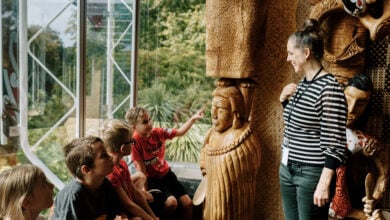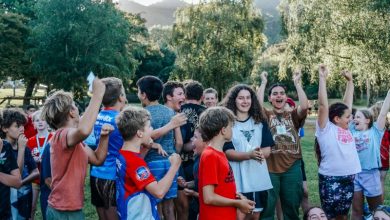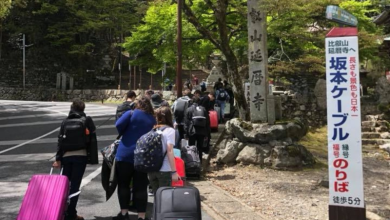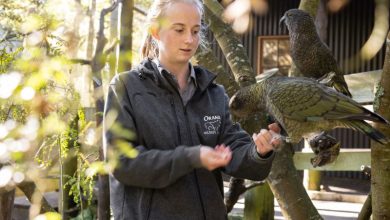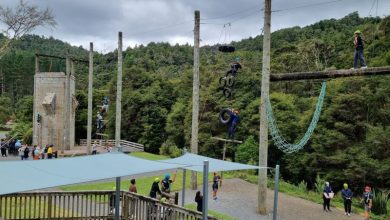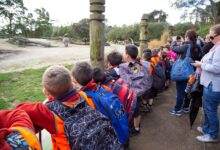Does your excursion have an educational narrative?
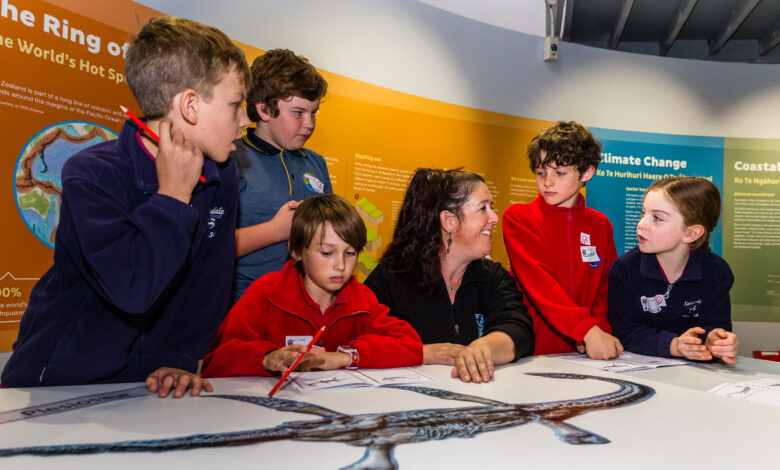
School excursions can bring the curriculum alive. Defined by Longman dictionary as, a ‘short journey made for pleasure, usually by several people together’. The school trip is often among the highlights of the academic year and can provide lifelong memories and learnings.
A coach journey is often part of the fun of the field trip, but school days out don’t necessarily need to involve lengthy travel. Local options can be as successful and memorable as great adventures.
Place-based education can incorporate short journeys to discover and experience local outdoor experiences that can enable students and teachers to cement their sense of belonging or standing, their Tūrangawaewae. It can prompt a re-examining of the historical and social contexts of places in Aotearoa from a kaupapa Māori perspective.
A ‘place-responsive’ approach to education outside the classroom is a concept researched by senior lecturer at the University of Waikato Mike Brown, whose study ‘A pedagogy of place: Outdoor education for a changing world’, co-authored by Brian Wattchow, challenged the narrative around the ‘emphasis on risk and challenge’ in education outside the classroom.
He writes, “Outdoor education has a long history in schooling in Aotearoa/New Zealand and it is generally believed that it can contribute to students’ personal and social development. Current practices that place an emphasis on risk and challenge in outdoor environments can be traced back to the imperial and militaristic antecedents that influenced early theorists and practitioners (Lugg, 2004; Nichol, 2002).
“It has been argued that the focus on adventurous pursuits, based on balancing risk with competence to achieve a “peak experience”, has privileged certain ways of thinking about outdoor education (Zink, 2003). The quest to provide excitement and fun, through increasingly novel or contrived activities, has arguably overshadowed nuanced debate around the educational value of such experiences. It has been suggested that outdoor education programmes have largely been defined by risk rather than educational narratives (Brookes, 2002).”
So perhaps it’s time for a more narrative-led approach to educational trips than a challenge-based one? Brown found a place-responsive approach to outdoor education programmes ‘requires a rethinking of outdoor education as a set of activities’ and ‘encourages a cross-curricula approach to teaching and learning. For example, integration of elements from HPE, EfS, science.’
“Localised programmes can provide opportunities for students to be challenged and engaged in learning that is contextualised and relevant to them,” says Brown. Across the whole curriculum this lens of contextualised and culturally relevant delivery must be applied, inside or outside the usual learning environment.
Having intended learning outcomes and integrating content within the curriculum are a given when planning your next excursion, with the lens of contextualised and culturally relevant delivery applied. Enriching days out with a wider, community or environmental purpose can also help broaden the benefits.
Removing barriers with MOTAT STEAM Cells in schools
An LEOTC visit to MOTAT is a highlight for both students and teachers, and school trips create great memories. But sometimes the hassle of arranging transport, adult supervision and cost of bus hire can leave this option in the ‘too hard’ basket.
MOTAT education programmes delivered via our STEAM Cells are increasing in popularity for these very reasons, paired with teachers’ desires to give their students a unique learning experience. Our STEAM Cells are compact trailers that are packed full of specialised STEAM equipment, teaching resources, and museum collection items, and driven over to you by our educators. The exact resources we bring in the STEAM Cell are chosen to meet your students’ learning needs and, with expert facilitation from the MOTAT Educator, will provide you and your students an engaging hands-on and minds-on learning experience.
STEAM Cell visits can be arranged across the North Island and Communities of Learning are even booking out a MOTAT Steam Cell and Educators for blocks of days to share the experience for all their students and pool the costs across the schools.
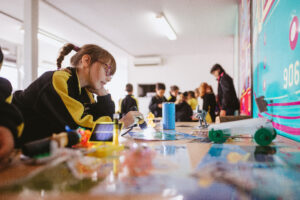
Sometimes it is daunting trying to book this type of education service, but we provide beginning-to-end support and advice. This could mean creating a bespoke experience to address a class’s specific learning intentions, finding the best combination of dates to accommodate multiple year-level bookings or planning the day to fit with your school timetable structure.
Cultivating environmental care in school group excursions
Education manager at the National Aquarium of New Zealand, Amy Stevens, told School News: “We have a number of educational programmes on offer to school audiences that align to National Curriculum content and standards for learners. Our educational programming and activities can be delivered onsite at the National Aquarium, offsite while immersed in natural environments like the rocky shore, or at your school either in person or virtually.
“Our onsite, offsite and virtual programming aims to connect all participants with nature and the ocean environment. We do this by encouraging learners to see real wildlife up close (in person or virtually), handle real natural history specimens (shells, bones, shark teeth and more) and through awe-inspiring immersive experiences. Building not only on an individual’s key knowledge and understanding, but also enhancing positive attitudes, emotion, natural curiosity and empathy for others and the world we live in.
“Regular auditing of programming enables the National Aquarium to deliver sessions that aim to build scientific knowledge, integrate mātauranga Màori, foster interest in STEM subjects and careers, and build positive pro-environmental behaviours.
“We are also currently developing an eLibrary of pre- and post-visit resources for teachers to utilise, for inspiration in the classroom. We can also connect schools with other partner organisations offering their own programming and experiences, to enrich learning experiences further.”
Create entertaining, educational and interactive experiences
The International Antarctic Centre in Christchurch provides a unique opportunity for learning outside the classroom. The education programmes are delivered by positive and enthusiastic educators who enjoy sharing their knowledge and passion for Antarctica. The programme is supported by the online Science Alive Mātauranga Curriculum and the New Zealand Curriculum.
The programme includes: a guided tour through the Antarctic Attraction and Penguin Encounter where you can see what a colony of rescued Little Blue Penguins get up to during the day in their purpose-built enclosure; an ‘Antarctic Storm’ in a room filled with real snow and ice chilled to -8°Celsius with simulated Antarctic winds, which introduce a wind chill factor that feels like -18°C; ‘hands-on’ displays on current science research, animal adaptations, and even a dinosaur.
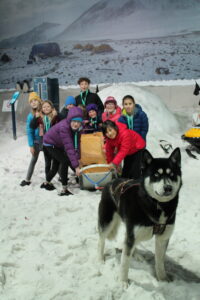
Students can experience the cold, extreme environment of space through one of the Mission to Space programmes at the International Antarctic Centre. School groups experience an immersive STEAM programme based in NZ’s developing space hub, Christchurch, and led by NASA-trained STEM educators. The camp includes educational workshops and team challenges such as Nano Rover construction and experiential Astronaut training. Students learn about robotics, aerospace and the environment, inspiring continued STEAM learning pathways and the development of critical future focused skills. They can either experience space learning through the Kids in Space outreach programme at their school or through the Antarctic Aerospace programme at the International Antarctic Centre.

